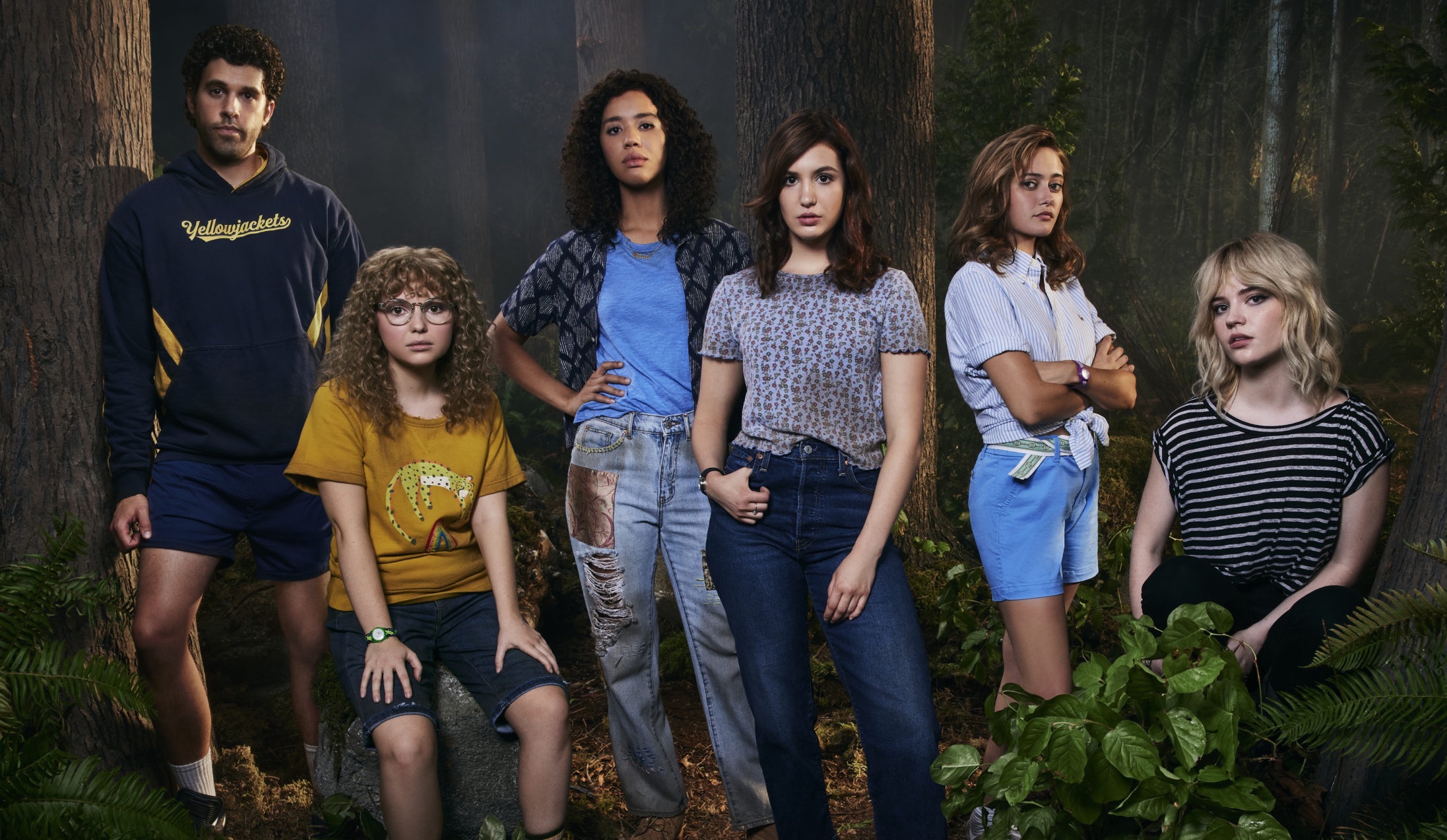To hear composers Craig Wedren and Anna Waronker—respectively, the front-people for Shudder to Think and That Dog—tell it, their spooky theme song (“No Return”) and creepy-crawly incidental music for the Showtime network phenom Yellowjackets was an inevitable part of their longtime friendship and working relationship; one that starts in the indie-rock ’90s and wound its way through their first collaborative gigs on Hulu’s Shrill and The CW’s The Republic of Sarah.
With Yellowjackets’ first season having just ended with a bang (almost—no spoilers), it must be said how crucial Wedren and Waronker’s musical cues are within the totality of the series. For their music often leads the mind’s eye into a scene—furiously fast or pensively slow—then drives it all home with a hammer and nail, be it visions of island cannibalism, ritual sacrifice, suicidal tendencies, or the naturally ferocious fearsomeness of the woods.
We caught up with the LA-based neighbors Wedren and Waronker on the night before Yellowjackets’ frantic season finale. Quite frankly, having my own long past of Wedren interviews for Shudder, solo projects, and early film soundtracks—to say nothing of his easy camaraderie with Waronker—this was a happy fly on the wall circumstance.
How do you two know each other, considering your bands rolled tough along the ’90s indie circuit?
Craig Wedren: We were certainly in many of the same rooms many times over many years. We’ve had freakishly parallel career paths. That said, we didn’t really really get to know each other until we were parents together at the same elementary school. We were hanging in the staff yard for a kids’ birthday party. Mutual friends there got us into a conversation about our respective likes and interests, and from there we knew it was meant to be. After that, there was the passive search for the right project to do together. When Shrill came up, that wound up being the right thing.
“I started composing for film and TV right after That Dog first split. I was in and out of it for a few years because for some reason I wasn’t clicking with it. When we got together, my whole mind opened up as to how it could be done. Our collaboration opened me up to making this my main focus.” — Anna Waronker
Anna Waronker: The relationship started off in a cute way. Craig and his wife became mine and my husband’s [Redd Kross’ Steven Steve McDonald] buddy family at the school. That’s when we started talking about doing something together. Looking for the right fit is how we got to be such good friends.
Are your children friends with each other?
Waronker: They are. It’s cute. Even though they’re too old to be called “kids” or “cute.”
Wedren: I think it’s cute.
Waronker: I do too, but I can’t help but think that I would get a door slammed in my face at home if I said that too loud. Or they’ll give me a big weird smile.
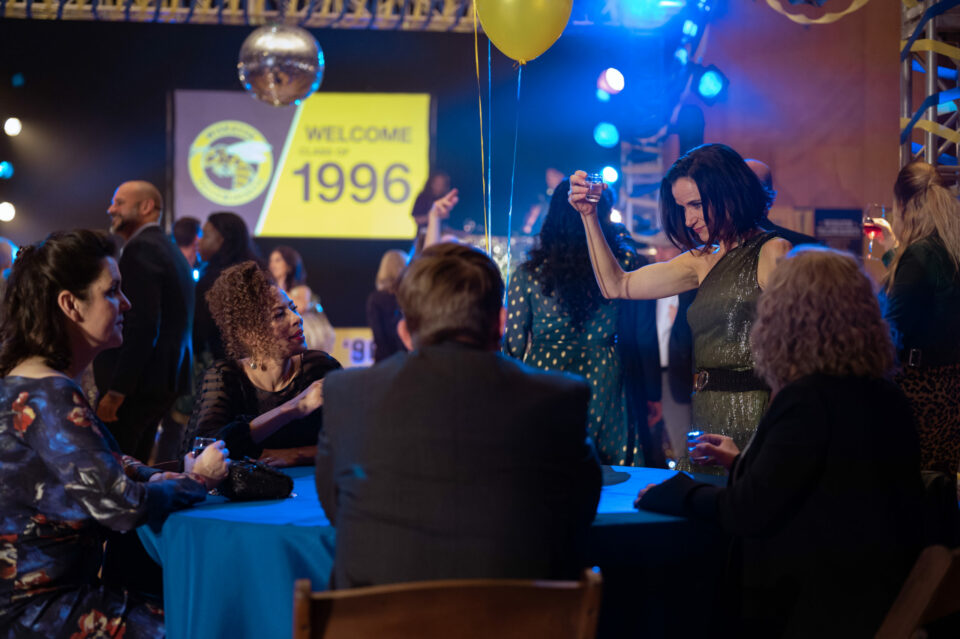
(L-R): Melanie Lynskey as Shauna, Tawny Cypress as Taissa and Juliette Lewis as Natalie in YELLOWJACKETS, “Sic Transit Gloria Mundi”. Photo credit: Kailey Schwerman/SHOWTIME.
Do your children appreciate what you do as musicians?
Waronker: My son is 12 now. He took some time before getting into music since he grew up with two active-musician parents in the house. He couldn’t get away from it, so the only way he could rebel was not being into music. Since the pandemic, though, he started listening to different things—across the map and different decades. I think now he’s come to appreciate what we do, so I’m grateful for the whole ’90s revival. He even heard a song that he told me that he wanted to learn to play, which was very reminiscent of That Dog.
“Without our scary personal music, we wouldn’t have the chops to do Yellowjackets. Besides, one of the beautiful things about Yellowjackets is that we might get notes that the music wasn’t freaky enough.” — Craig Wedren
Wedren: Zeitgeisty stuff like Yellowjackets has helped our cause, upped our credibility. My 13-year-old son was very impressed with how many plays we got on Spotify in the first 24 hours that the single [“No Return”] was released. As a child, you can only appreciate what your parents do to a certain extent.
You both mentioned looking for something to do together and having Shrill fit the bill. How did that comic series come to suit the two of you?
Waronker: We wanted something that would be fun. Shrill was created by one of my oldest, best friends, Alexandra Rushfield. As they were looking for composers, both mine and Craig’s names came up.
Wedren: The style of the show was poppy and experimental. That’s definitely in both of our wheelhouses. It seemed like a nice fit for a first collaboration. Not as freakish as, say, Yellowjackets.
The film and television scoring business is a daunting place.
Waronker: I started composing for film and television right after That Dog first split. I was in and out of it for a few years because for some reason I wasn’t clicking with it. When we got together, my whole mind opened up as to how it could be done. Our collaboration opened me up to making this my main focus. Thanks, buddy.
Wedren: Thanks, baby.
Waronker: Did you call me ‘baby’? I’ll call you ‘baby’ back.
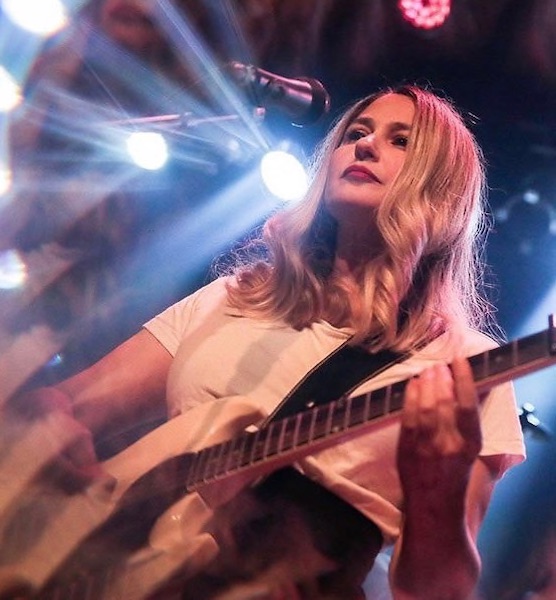
Wedren: Even within the sitcom world, some [projects] are fun and super awesome and some…are not. Working on Shrill, though, it was like a lightbulb went off. Having some weird adult with you doing this, with its own unique code and throughline, is fun. Plus, doing this, you don’t have to deal with the horrors of labels and touring. You can have your cake and eat it too.
Waronker: You can sleep at home, see your children and spouses. And Craig lives less than a mile from me, so it’s real convenient.
Wedren: If Anna would pick up a skateboard like her husband, she could just fly here. Or maybe we could get a chairlift.
Waronker: Or a zip line, which would be really fun.
I find it remarkable that both of you have become so ensconced in sitcom music considering I don’t think of either of you in that fashion, especially since both of you have made music that’s so harrowing.
“There were times making Yellowjackets where I was sure there was no way they’d let us get away with what we were doing.” — Anna Waronker
Waronker: Obviously [laughs]. Which is probably why after working on so many sitcoms, we wanted to do something like Yellowjackets. It’s a skill and it’s a trade. We need the balance for our own creativity, for ourselves as artists. But I also love an assignment that challenges me. Can I do a country music snippet that’s two seconds long?
Wedren: It might be genre work that you would never allow yourself to do otherwise. It’s very freeing. Like character acting. There’s something delicious about putting on a mask. Without our scary personal music, we wouldn’t have the chops to do Yellowjackets. Besides, one of the beautiful things about Yellowjackets is that we might get notes that the music wasn’t freaky enough.
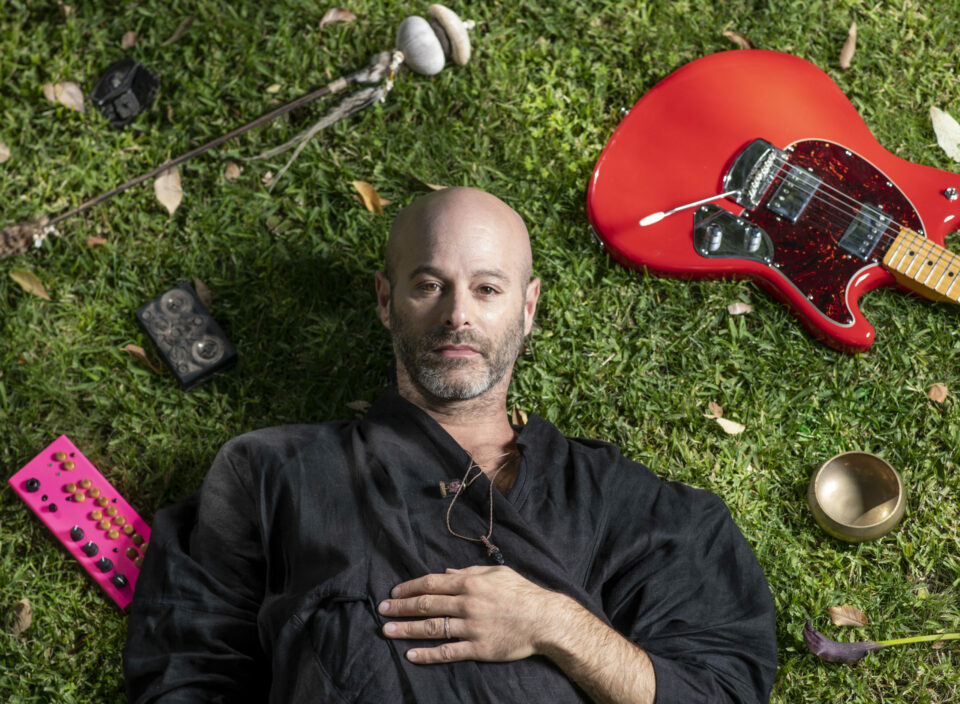
Waronker: There were times making Yellowjackets where I was sure there was no way they’d let us get away with what we were doing.
What was the first scene in Yellowjackets where you two go at it?
Wedren: The plane crash. There were so many layers, I nearly got lost.
Waronker: Oftentimes we’ll do stuff together, then separate. He’ll do some characters, I’ll do some characters. In this situation, I told him that I just couldn’t do plane crash stuff.
Wedren: She gave notes through split fingers on both hands.
Waronker: The first one where we really went nuts was in episode six where Lottie is baptized and there’s the attempted outdoor abortion. That whole seven-minute scene—we were really clicking.
Wedren: That was a a peak inspiration day filled with us being asked if we could make growling bear and witch sounds.
“It was the sound of the band that we would never let ourselves be in throughout the ’90s, a collage of everything we were absorbing then filtered through this present-day hindsight.” — Craig Wedren
Is there a character that you feel the most empathy for when you’re writing the music for a scene?
Wedren: I do remember discovering Misty’s vibe, which made me giggle. It added a dimension of comedy to the show, which was a surprise.
Waronker: I like Shauna and Natalie. There’s a lot of emotion going on with them, and I got to use that. Grown-up Natalie, in particular, and the older Shauna, too. Meanwhile, I took this “Which character are you most like” quiz, and it turns out I’m Jackie.
Wedren: I’m Lottie. The mystical transcendent baptism stuff is me. That’s where my records come from.
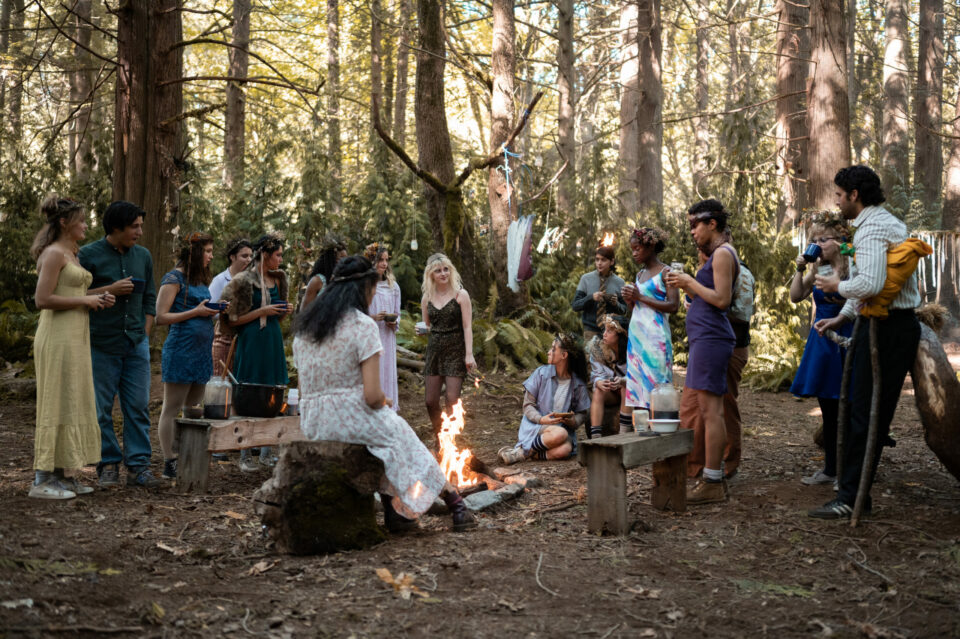
(L-R): Ella Purnell as Teen Jackie, Kevin Alves as Teen Travis, Sophie Nélisse as Teen Shauna, Alexa Barajas as Teen Mari, Sophie Thatcher as Teen Natalie, Luciano Leroux as Javi, Mya Lowe as Yellowjacket #1, Keeya King as Teen Akilah, Jasmin Savoy Brown as Teen Taissa, Samantha Hanratty as Teen Misty and Steven Krueger as Ben Scott in YELLOWJACKETS, “Doomcoming”. Photo credit: Kailey Schwerman/SHOWTIME.
“No Return” starts everything off with a bang. What was the conversation about creating the theme song like?
Waronker: They weren’t sure if they wanted a theme song or if there would be a snippet used. There was one ’90s song they had there at the beginning as a temp, while we wrote a bunch of end-credit tracks. We talked about a longer traditional theme song and recorded several options, some being ethereal, some being wild. And we did a mix of both and twisted the knife. Once we figured they wanted a song, a rad one, we did that.
Wedren: It was a laboratorial process…until we figured out combining all of what we had done already. It was the sound of the band that we would never let ourselves be in throughout the ’90s, a collage of everything we were absorbing then filtered through this present-day hindsight.
Waronker: We keep our decisions spontaneous so as to keep the life in this music. The rebelliousness we had in the ’90s translates to that with all of the complexities of the moment. FL
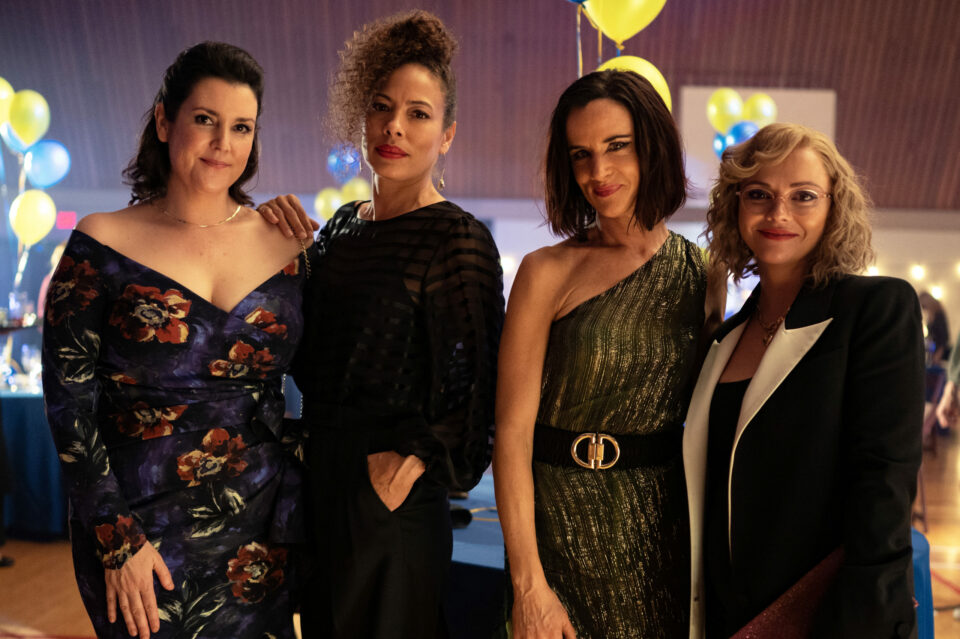
(L-R): Melanie Lynskey as Shauna, Tawny Cypress as Taissa, Juliette Lewis as Natalie and Christina Ricci as Misty in YELLOWJACKETS, “Sic Transit Gloria Mundi”. Photo credit: Kailey Schwerman/SHOWTIME.

